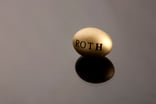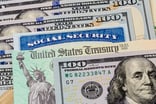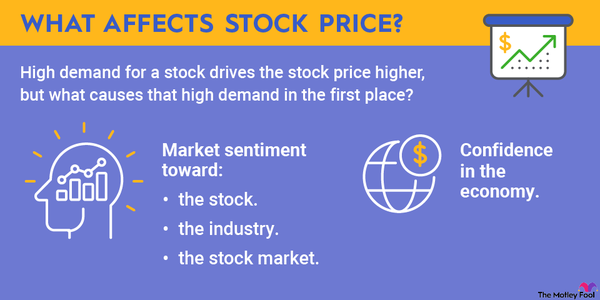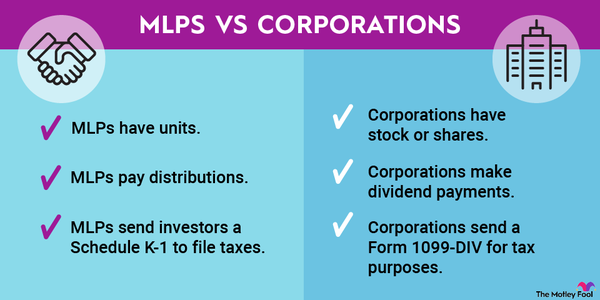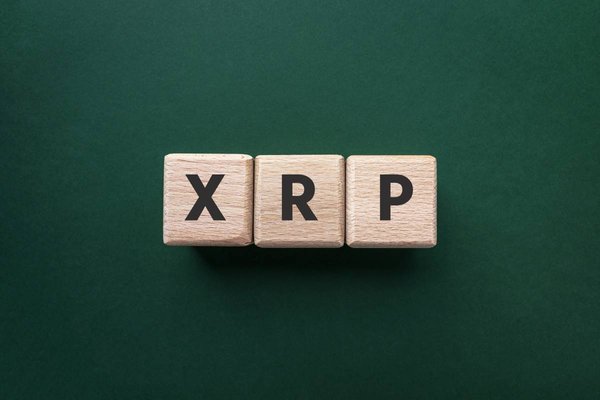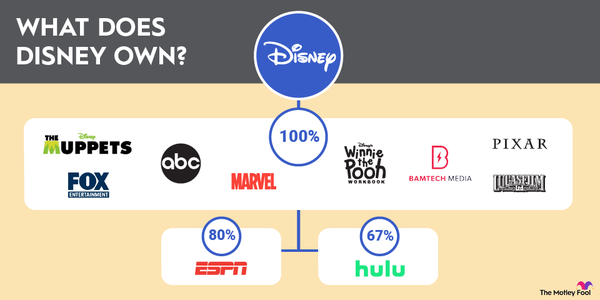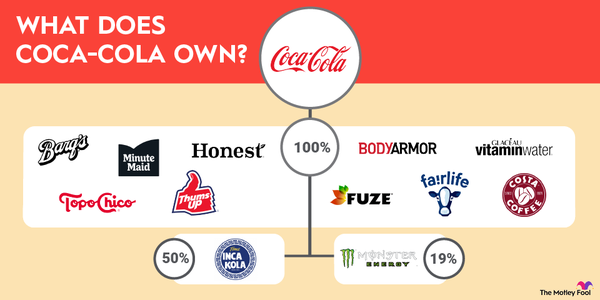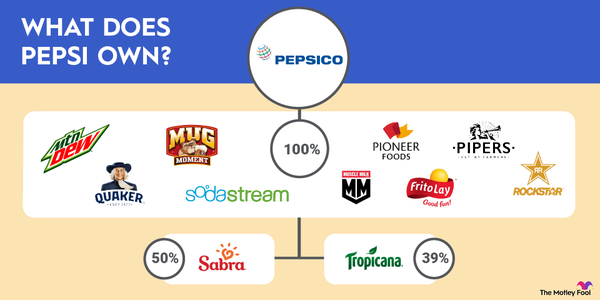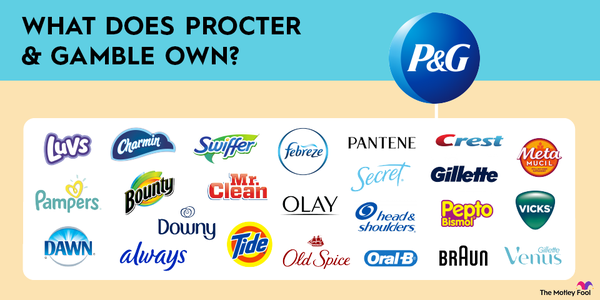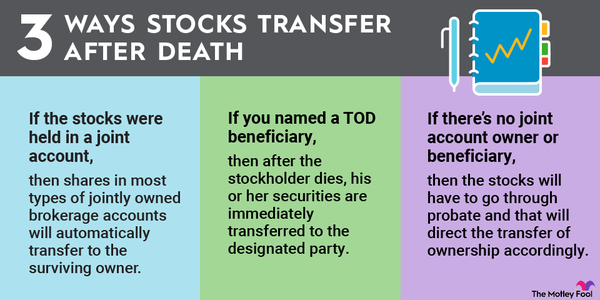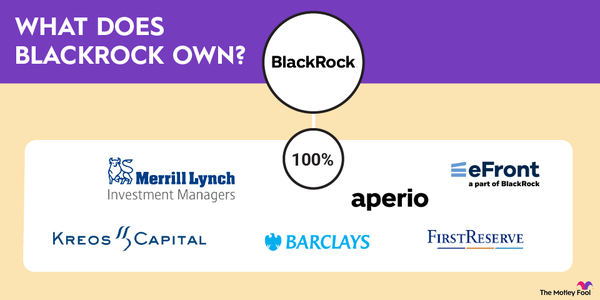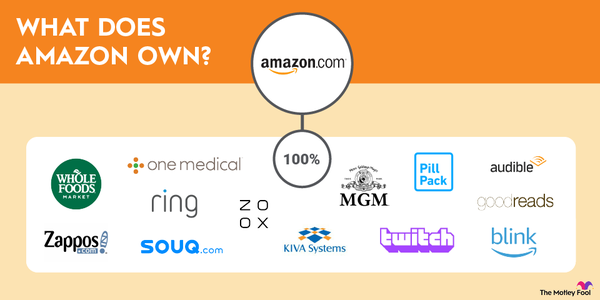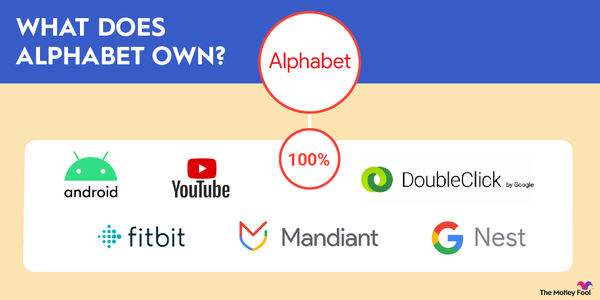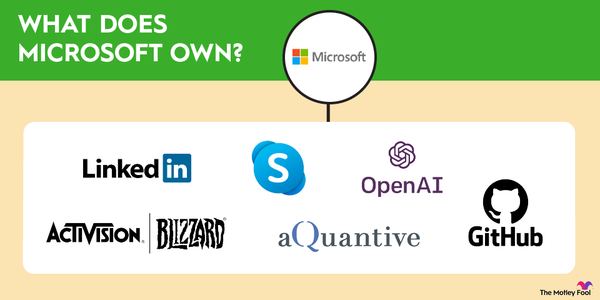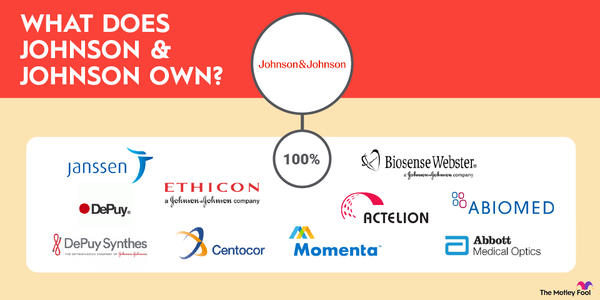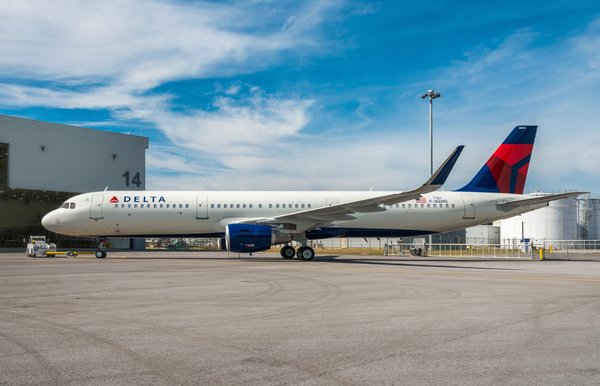Who owns Ford (F 1.44%), maker of the beloved F-series truck that sells 750,000 units annually? The short answer is that Ford is publicly owned by a mix of institutional, insider, and retail investors. Institutions own about 58% of Ford stock, insiders -- including Ford family members -- own about 0.3%, and retail investors own the rest.
This guide covers Ford's ownership structure in depth, with bios for the largest institutional investors, insider investors, and board members. We'll also explore how you can invest in this iconic American automaker.
Who owns it?
Who is the owner of Ford?
Ford is owned by a diverse group of shareholders but largely controlled by the Ford family. This is made possible through Ford's dual-class stock structure that concentrates voting rights in Class B shares. The Class B shares account for 2% of the company but collectively hold 40% of the voting power. These are owned by the Ford family, while the public owns Ford's common shares.
Shareholder
The automaker initiated this dual-class system when it went public in 1956. At that time, the $657 million initial public offering (IPO) encompassing 10.2 million shares was the largest in U.S. history.
The IPO occurred 53 years after Henry Ford founded the automaker with 11 investors. Significant milestones in the company's history include the implementation of the assembly line, global expansion, competitive and recessionary pressures in the late 1990s and early 2000s, and the move to produce electric versions of popular models.
Assembly line innovation
Henry Ford is credited with implementing the assembly line concept to enable mass production. The innovation created cost efficiencies that allowed Ford to cut the price of its Model T touring car by more than half, from $850 in 1908 to $300 in 1925.
Global expansion
Between the 1920s and the 1970s, Ford expanded its production concept worldwide while evolving its product line. Particularly successful models included the Thunderbird and Mustang. In the 1980s, Ford shifted to an aggressive acquisition strategy. Over the next two decades, Ford purchased Jaguar, Aston Martin, Hertz (HTZ 4.59%), Volvo, and Land Rover.
Competition and recession
The late 1990s and 2000s were characterized by competitive and economic challenges, prompting Ford to sell off the recently acquired brands. Fuel-efficient Japanese cars had been taking market share in the U.S., and then the economy felt the repercussions of the 2008 financial crisis. Vehicle sales and consumer spending fell dramatically as a result.
Ford's fellow American automakers, Chrysler and GM (GM 2.92%), both filed for bankruptcy in 2009. Ford managed through the crisis by cutting costs and focusing on its best brands.
Electric vehicles (EVs)
In the early 2020s, changing consumer preferences and competition from Tesla (TSLA -3.46%) and other EV makers prompted Ford to allocate billions to EV innovation. The company now produces electric versions of its most popular models, including the Mustang Mach-E, F-150 Lightning, and Electric Explorer.
Largest shareholders
Who are the largest shareholders?
Ford's largest shareholders are corporate officers, Ford family members, board members, and institutional investors. The top five individual shareholders are identified below, followed by the top five institutional shareholders. Note that the ownership percentages are based on Ford's outstanding common stock, and the position values assume a $12.38 share price.
Individual shareholders
- James Farley, Jr.: Farley is Ford's president and CEO and a director. Prior to 2020, Farley was Ford's chief operating officer (COO). He has also served as president of new businesses, technology, and strategy. Farley has the largest reported individual position in Ford common stock, with 4.6 million shares. His position is worth more than $57 million.
- William Clay Ford, Jr.: William Clay Ford, Jr. -- also known as Bill Ford -- has been the automaker's executive chair since 1999. He started his career at the company in 1979 as a product planning analyst. He has held roles in multiple disciplines, from marketing to manufacturing. Bill Ford owns 2.9 million common stock shares, plus 28% of Ford's Class B shares. His common stock position is worth $36 million.
- J. Doug Field: Field leads Ford's electric vehicle innovation as chief EV, digital, and design officer. He came to Ford after working with Apple (AAPL 1.88%) as vice president of special projects. Field's position in Ford's common stock totals 1.4 million shares worth about $18 million.
- John T. Lawler: Lawler is Ford's vice chair and chief financial officer. He previously held several senior roles with the automaker, including CEO of Ford Autonomous Vehicles and vice president of mobility partnerships. Lawler holds 942,741 Ford common shares, collectively worth more than $11 million.
- Peter C. Stern: Stern is president of Ford Integrated Services, a role he accepted in August 2023. He formerly worked as vice president and head of marketing in Apple's Services division and as executive vice president and chief product officer at Time Warner Cable. Stern holds 572,666 shares of Ford common stock, a position valued at $7 million.

Institutional shareholders
- Vanguard Group: Vanguard owns more than 339 million shares of Ford Motor Company, which is 8.67% of the automaker's outstanding common shares. The position has a market value of $4.2 billion. Vanguard is a fund manager with a family of low-cost index funds. Vanguard Total Stock Market Index Fund (VTI 1.14%), Vanguard 500 Index Fund (VOO 1.13%), and Vanguard Value Index Fund (VTV 1.17%) have large Ford positions.
- State Street Corporation (STT 2.91%): State Street has more than 329 million Ford shares under its management, representing 8.4% of outstanding common shares valued at about $4 billion. State Street Corporation is the parent of State Street Global Advisors (SSGA), which manages the popular SPDR exchange-traded funds (ETFs). The SPDR S&P 500 ETF Trust (SPY 1.2%) portfolio includes 45 million shares of Ford.
- BlackRock (NYSE:BLK): BlackRock owns 7.2% of Ford's outstanding common stock, or 282 million shares, with a market value of $3.5 billion. BlackRock, one of the world's largest asset managers, operates the iShares family of ETFs. The iShares Core S&P 500 ETF (IVV 1.11%) holds 39 million Ford shares.
- Newport Trust Company: Newport Trust Company owns 154 million Ford common shares, valued at $1.9 billion. This share count is a 3.93% ownership stake. Newport Trust Company is the administrator of the Ford Stock Fund, which invests money exclusively in Ford stock on behalf of Ford employees.
- Charles Schwab Investment Management: The investment management division of Charles Schwab (SCHW 0.94%) holds 116 million Ford common shares. This position represents 2.96% ownership and is valued at $1.4 billion. Charles Schwab Investment Management is the advisor for Schwab ETFs. The Schwab U.S. Dividend ETF (SCHD 1.34%) has 90 million Ford common shares in its portfolio.
Board of directors
Who is on the board of directors for Ford?
Board of Directors
Ford's board of directors has 15 members:
- Kimberly Casiano: Casiano was elected to Ford's board in 2003. She is currently president of the advisory company she founded, Kimberly Casiano & Associates. She also serves as a director for Mead Johnson Nutrition and insurance company Mutual of America. Casiano owns 233,603 shares of Ford common stock, a position worth $2.8 million.
- Alexandra Ford English: English has served as a director for Ford since 2021. Between 2017 and June 2022, she held various leadership roles at Ford, including global brand merchandising director and director in corporate strategy. English holds 26,860 shares of Ford common stock, worth about $332,000.
- Henry Ford III: Henry Ford III joined Ford's board in May 2021 after holding several management roles at the company between 2006 and 2021. He served as an associate director on Ford's corporate strategy skill team and was the global marketing manager for Ford Performance. He owns 50,153 common shares, with a market value of almost $621,000.
- William Helman IV: Helman has served on the Ford board of directors since 2011. He is also a partner at venture capital firm Greylock Partners, where he led key investments in Zipcar, Hyperion Software, UPromise, and others. Helman is also a director for Harvard Management Company, Dartmouth-Hitchcock Medical Center, Isabella Stewart Gardner Museum, and The Steppingstone Foundation. Helman's Ford portfolio includes 239,367 common shares valued at $2.9 million.
- Jon Huntsman, Jr.: Huntsman first joined Ford's board in 2012. He left in 2017 to serve as U.S. ambassador to Russia and returned to his director duties in 2020. Huntsman has held several public service roles under the administrations of Donald Trump, Barack Obama, Bill Clinton, George H.W. Bush, and George W. Bush. Huntsman owns 387,555 common shares of Ford, collectively worth almost $5 million.
- William Kennard: Kennard joined Ford Motor Company's board in 2015. He co-founded asset manager Velocitas Partners and currently serves on the operating executive board of private equity firm Staple Street Capital. Kennard has 210,127 Ford common shares in his portfolio, with a market value of about $2.6 million.
- John C. May: May was elected to a director role with Ford in December 2021. He is also chairman and CEO of Deere & Company (DE 1.37%), where he rose through the ranks after joining the team in 1997. He was formerly a management consultant at KPMG Peat Marwick. May's Ford position totals 56,883 shares, which have a total value of about $704,000.
Chief Executive Officer (CEO)
- Beth Mooney: Mooney has served on Ford Motor Company's board since 2019. She has also held the positions of chairman and CEO of banking holding company KeyCorp (KEY 1.67%) since 2011. Her finance career has spanned leadership roles at AmSouth Bank Corporation, Bank One, Citicorp Real Estate, Hall Financial Group, and Republic Bank of Texas. Mooney's Ford share count is 115,830. Her common stock position is worth about $1.4 million.
- Lyn Vojvodish Radakovich: Radakovich joined the director group at Ford in 2017. She was formerly executive vice president and chief marketing officer at Salesforce (CRM 2.21%). She has also worked in leadership roles at Microsoft (MSFT -0.1%), BEA Systems, and venture capital firm Andreessen Horowitz. Radakovich holds 171,531 shares of Ford common stock, collectively worth about $2.1 million.
- John L. Thornton: Thornton was elected to Ford's board in 1996 and is currently the lead independent director. He is also executive chairman at Barrick Gold (GOLD 1.51%), non-executive chairman at asset manager PineBridge Investments, and was formerly president and director of Goldman Sachs (GS 2.19%). Thornton's position in Ford includes 340,298 common shares, a stake worth about $4.2 million.
- John Veihmeyer: Veihmeyer joined Ford's director team in 2017. He has an extensive background in financial reporting, governance, and risk management. He spent much of his career with KPMG International, serving as chairman, U.S. chairman, CEO, and U.S. deputy chairman. Veihmeyer owns 216,943 Ford common shares, a position valued at $2.6 million.
- John S. Weinberg: Weinberg became a director for Ford in 2016 after retiring from a long career in banking at Goldman Sachs. He joined the financial company in 1983 as an associate, became partner in 1992, and stepped in as vice chairman in 2006. He is also a board member for New York-Presbyterian Hospital and Middlebury College. Weinberg's position in Ford totals 261,661 shares, worth about $3.2 million.
- James D. Farley, Jr.: Farley has served on Ford's board since his appointment as president and CEO in 2020.
- John Lawler: Lawler was appointed vice chair in 2024.
- William Clay Ford, Jr.: William Clay Ford, Jr. has been on the automaker's board since 1988 and has served as executive chair since 1999.
Related investing topics
How to invest
How to invest in Ford
You can invest in Ford by purchasing its stock within your brokerage account. Alternatively, if you prefer a more diversified approach, you could invest in a mutual fund or ETF that holds Ford stock. There are several low-cost fund options, including:
- iShares Morningstar Mid-Cap Value ETF (NASDAQ:JKI)
- Vanguard U.S. Value Factor ETF (VFVA 0.96%)
- Invesco S&P 500 Enhanced Value ETF (SPVU 1.28%)
Ford is a member of the S&P 500, so a position in any S&P 500 index fund would include exposure to the automaker's stock. If you'd like to explore a segment of the automotive industry that behaves differently than automakers, see our guide to investing in auto parts stocks.
FAQ
Who owns Ford: FAQ
Who is the owner of Ford company now?
Ford is a public company owned collectively by its shareholders. The largest shareholders are Vanguard and State Street Corporation, which own 8.67% and 8.40% of Ford common stock, respectively.
Who is Ford's parent company?
Ford does not have a parent company. The automaker is an independent, publicly traded company.
Does the Ford family still own Ford?
Ford family members still hold minority positions in Ford common stock and all the Ford Class B stock. Since the Class B shares have expanded voting rights, Ford family members largely control the company, even though their equity positions are relatively small.
Does GM own Ford?
General Motors (GM) does not own Ford. GM owns Chevrolet, Buick, GMC, and Cadillac.


![Trump at White House podium. Official White House Photo by D. Myles Cullen. [MConverter.eu]](https://g.foolcdn.com/image/?url=https%3A%2F%2Fg.foolcdn.com%2Feditorial%2Fimages%2F801349%2Ftrump-at-white-house-podium-official-white-house-photo-by-d-myles-cullen-mconvertereu.jpg&op=resize&w=184&h=104)
